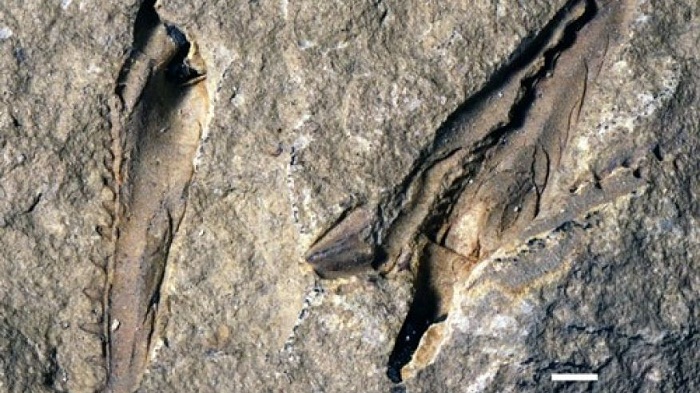"Gigantism in animals is an alluring and ecologically important trait, usually associated with advantages and competitive dominance,” the lead author of a new study on the worm, Mats Eriksson of Lund University, said in a statement. “It is, however, a poorly understood phenomenon among marine worms and has never before been demonstrated in a fossil species.”
Over 400 million years old, the giant fossilized creature was known as a bristle worm. The University of Bristol compares this ancient worm to modern-day Bobbit worms, which ambush and eat fish or cephalopods like squids.
The scientists gave the new worm species an interesting name: Websteroprion armstrongi. The second part of that name is in honor of Derek K Armstrong, a member of the Ontario Geological Survey who took the helicopter ride to collect the samples in the first place.
The first part is more interesting. That’s in honor of a musician named Alex Webster, a bass player for Cannibal Corpse, a death metal band. According to the statement on the discovery, this is because Webster was a “giant” on the bass, just like the worm itself was giant.
/Fox News/
More about:
















































